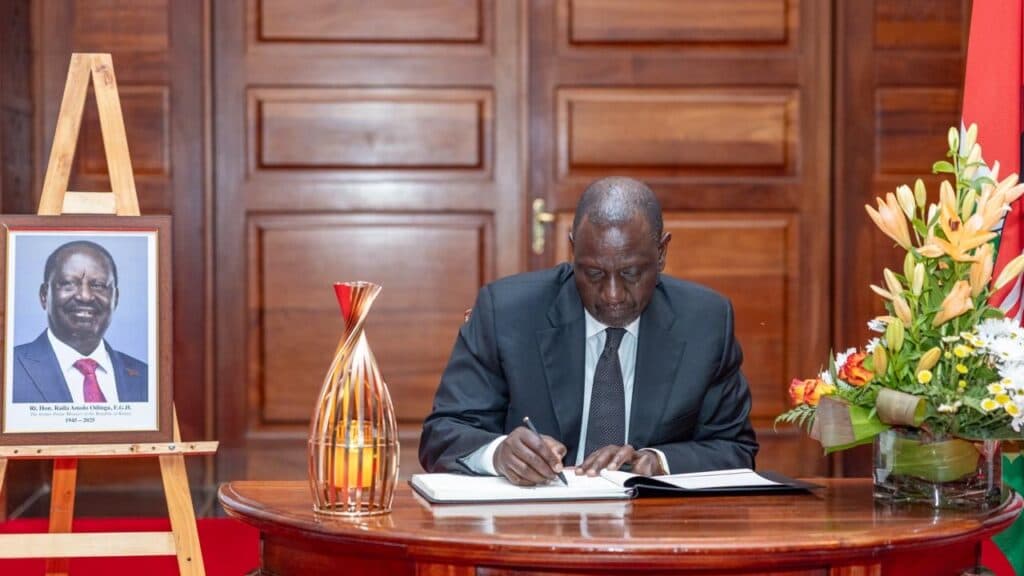We're loading the full news article for you. This includes the article content, images, author information, and related articles.
President Ruto asserts the new cybercrime law is essential to protect Kenyans from online threats, even as the High Court suspends controversial sections over fears they could stifle free expression.

NAIROBI – President William Ruto has mounted a staunch defense of the controversial Computer Misuse and Cybercrimes (Amendment) Act, 2024, portraying it as a necessary tool to shield citizens from digital threats. The President’s remarks follow a legal challenge that has seen the High Court of Kenya temporarily halt the implementation of key sections of the new law.
Speaking in Laikipia County on Thursday, October 23, 2025, President Ruto stated the legislation targets online harm, including terrorism recruitment, religious extremism, pornography, and cyberbullying. "We are talking about the meaning of religious extremism. It brings us harm, just like what we experienced in Shakahola. We have to stop it," he said, referencing the tragic cult-related deaths discovered in 2023. "Our young people are being terrorised on social media. We must stop that."
The President signed the bill into law on Wednesday, October 15, 2025, amending the original 2018 Act. The government argues the amendments are crucial for updating Kenya's legal framework to tackle the rise in sophisticated digital crimes.
The Computer Misuse and Cybercrimes (Amendment) Act, 2024, introduces significant changes to Kenya's digital regulatory landscape. It grants expanded powers to the National Computer and Cybercrimes Coordination Committee (NC4), a multi-agency body responsible for overseeing national cybersecurity. The NC4 is now empowered to direct internet service providers to block or render inaccessible websites and applications deemed to be promoting illegal activities such as terrorism, child pornography, or “extreme religious and cultic practices,” a power critics say lacks judicial oversight.
The law also broadens the definitions of several offenses and imposes harsher penalties. Key changes include:
The enactment of the law was met with immediate legal opposition. A petition was filed at the High Court in Nairobi by activist Reuben Kigame and the Kenya Human Rights Commission (KHRC), among others, challenging the law's constitutionality. They argue that several provisions are vaguely worded and overly broad, posing a direct threat to the freedom of expression guaranteed under Article 33 of the Kenyan Constitution.
On Wednesday, October 22, 2025, High Court Justice Lawrence Mugambi issued a conservatory order, temporarily suspending the enforcement of Section 27(1)(b), (c), and (2) of the Act. These suspended clauses criminalize the publication of information deemed “false, misleading, or fictitious” and communication that could harm a person's reputation or mental well-being. The petitioners contended these sections could be selectively used to target journalists, activists, and government critics. The case is scheduled for a hearing on November 11, 2025.
Civil society groups and media organizations have warned that the law could have a “chilling effect” on public discourse. Organizations like ARTICLE 19 and the Law Society of Kenya (LSK) have raised concerns that the legislation prioritizes state control over fundamental rights. Critics point to the disproportionate penalties, where posting content that “detrimentally affects” someone could lead to a KES 20 million fine, while financial crimes like SIM-swap fraud carry significantly lower fines.
The government has dismissed these criticisms as misinformation. Interior Principal Secretary Dr. Raymond Omollo urged the public to read the actual legislation, stating it is designed to combat organized cybercrime and protect citizens, not to silence dissent. Government Spokesperson Isaac Mwaura has also assured the public that the powers granted to the NC4 are subject to judicial review and align with international best practices.
As the legal battle unfolds, the debate highlights the delicate balance between securing Kenya’s digital space from genuine threats and upholding the constitutional rights that are the bedrock of its democracy. The outcome of the court case will set a critical precedent for the future of digital freedom and regulation in Kenya and the broader East Africa region.
Keep the conversation in one place—threads here stay linked to the story and in the forums.
Sign in to start a discussion
Start a conversation about this story and keep it linked here.
Other hot threads
E-sports and Gaming Community in Kenya
Active 9 months ago
The Role of Technology in Modern Agriculture (AgriTech)
Active 9 months ago
Popular Recreational Activities Across Counties
Active 9 months ago
Investing in Youth Sports Development Programs
Active 9 months ago